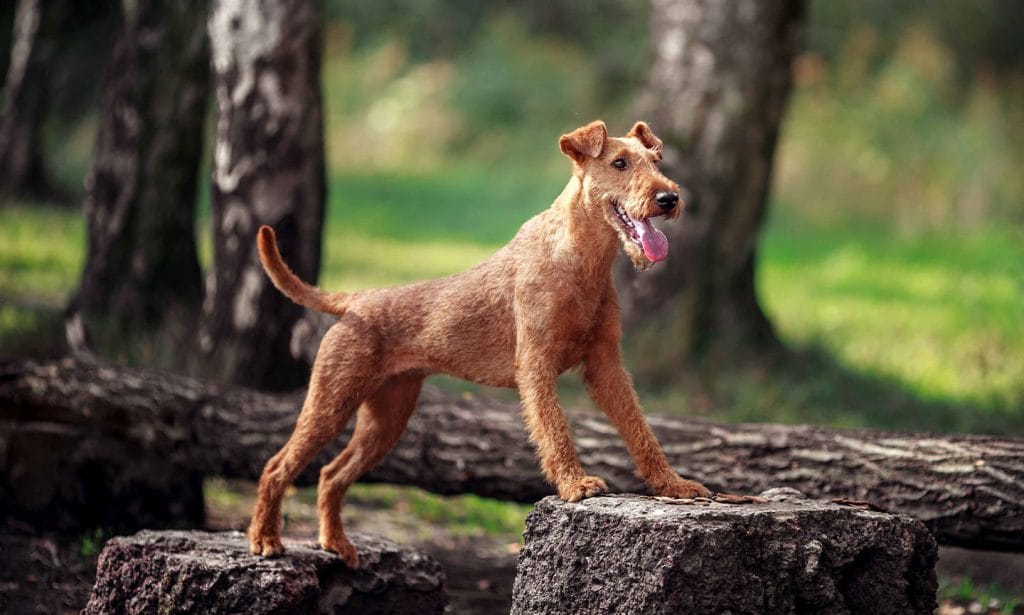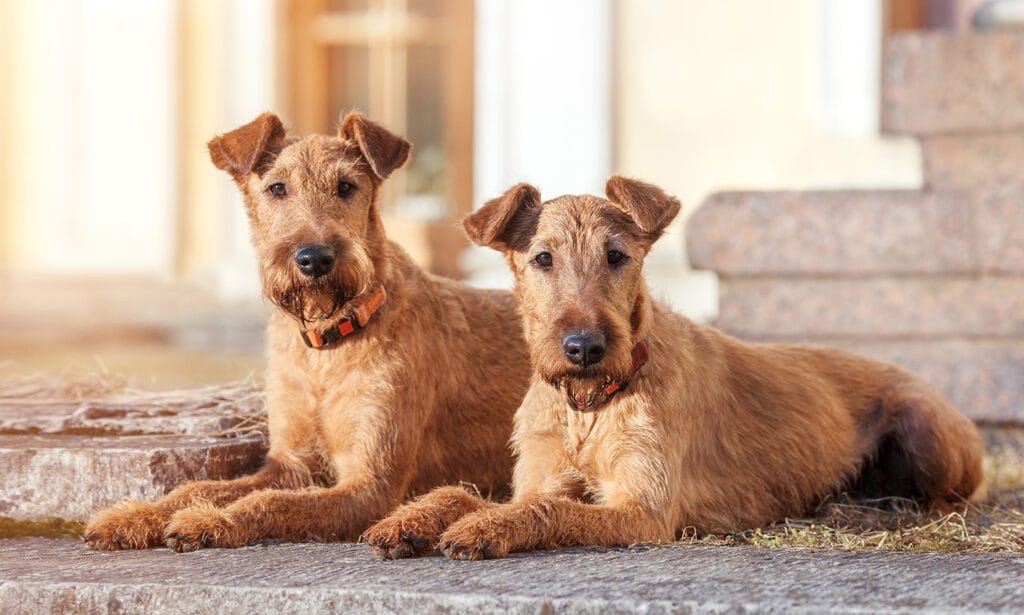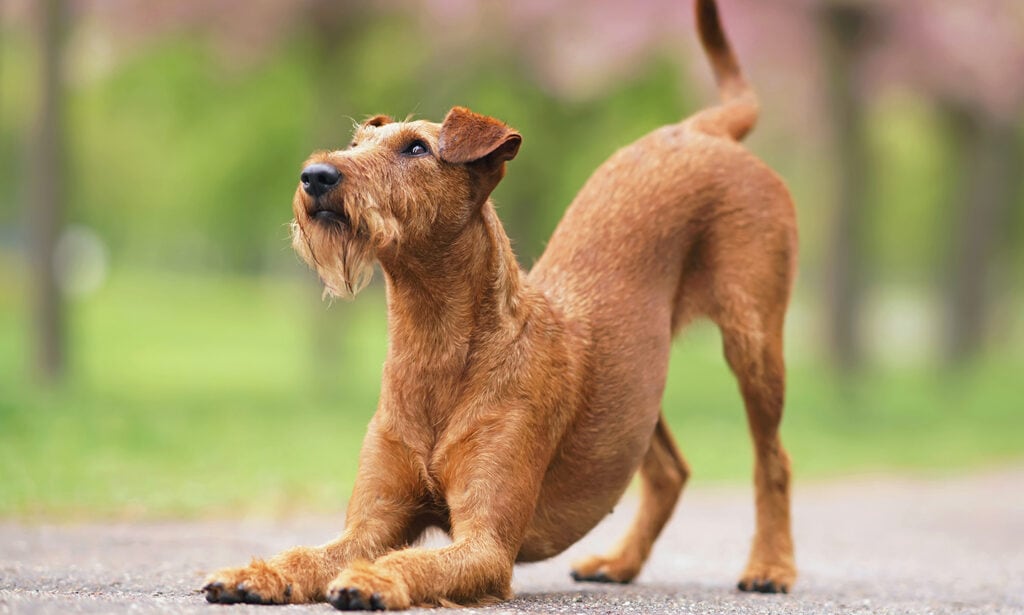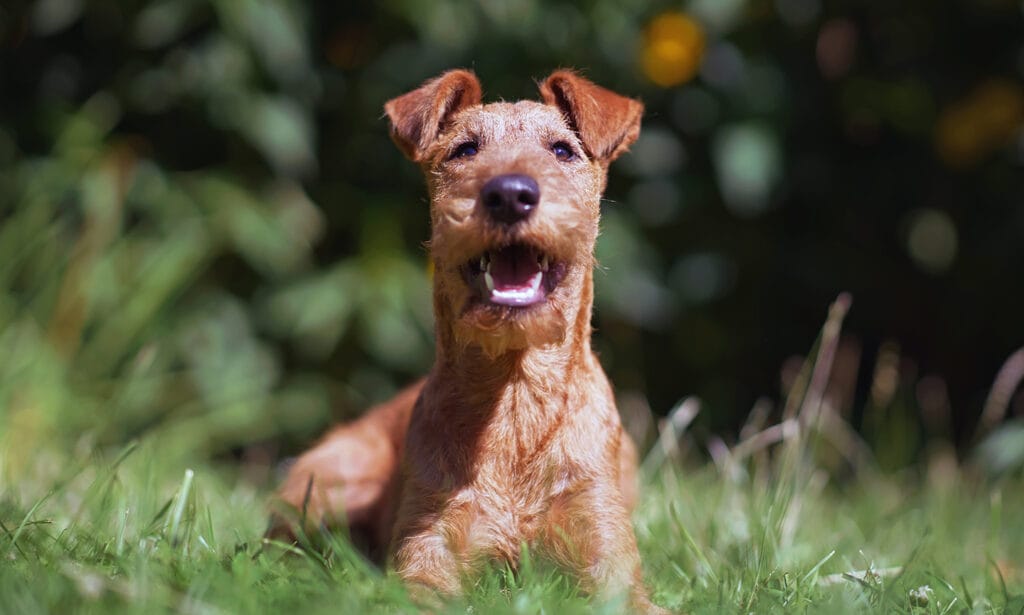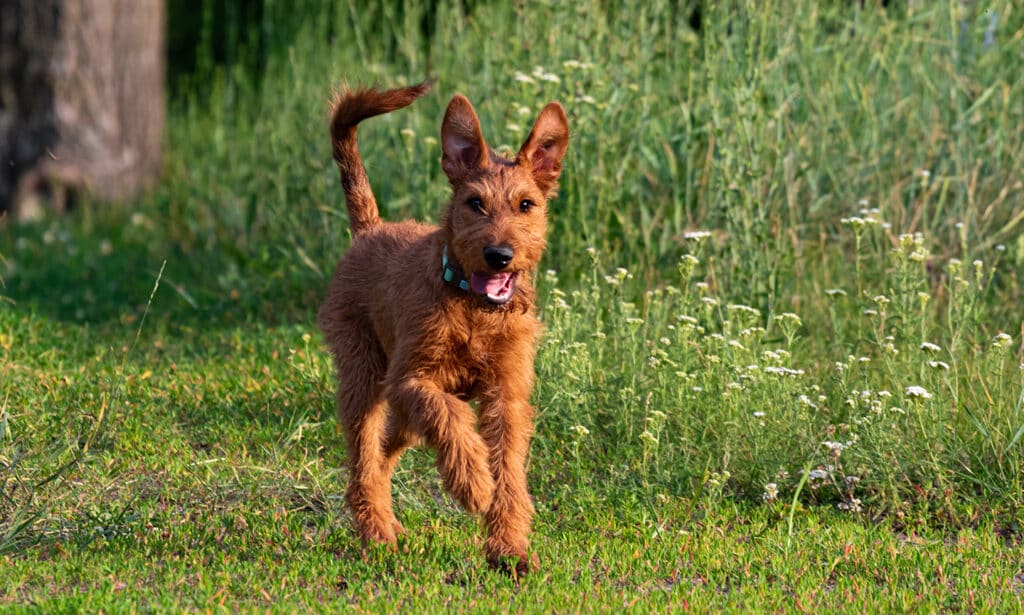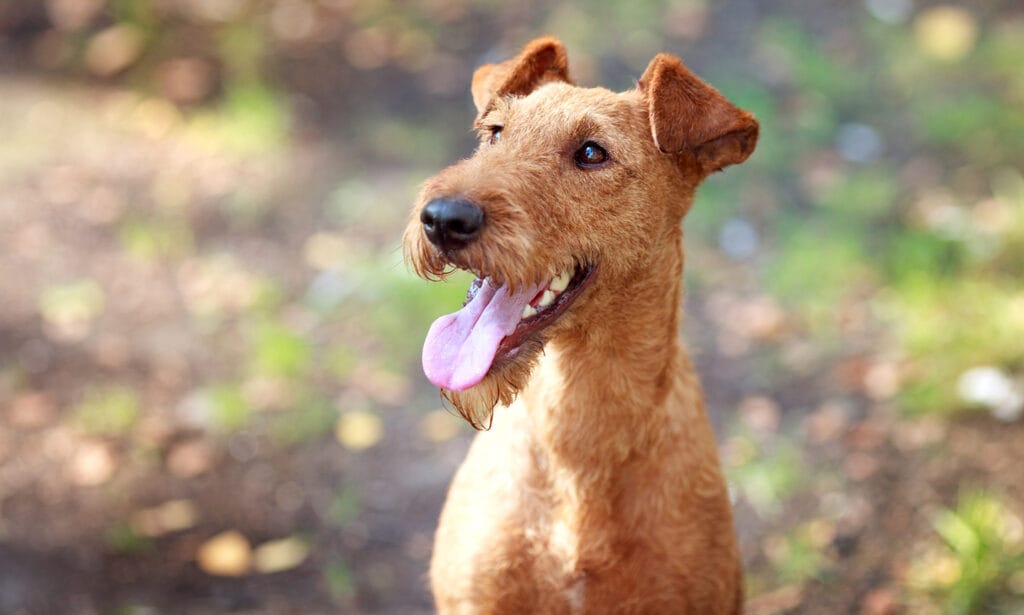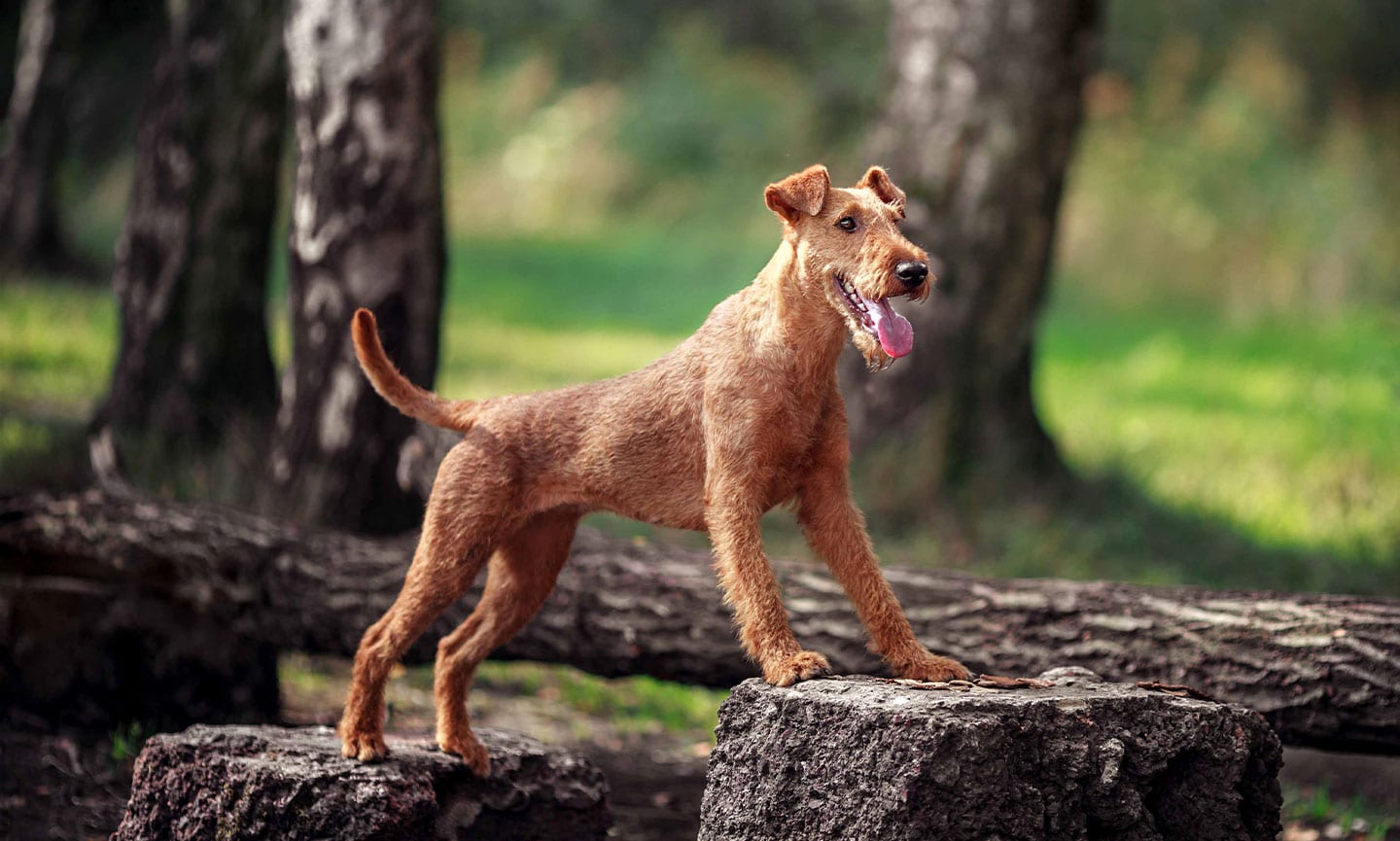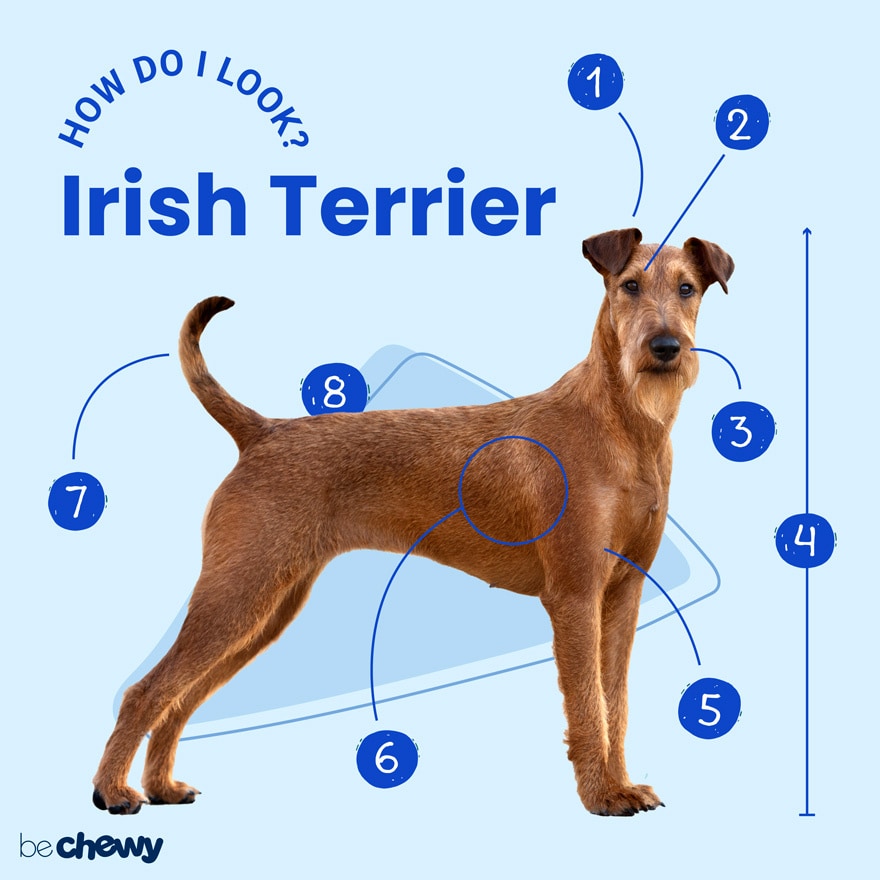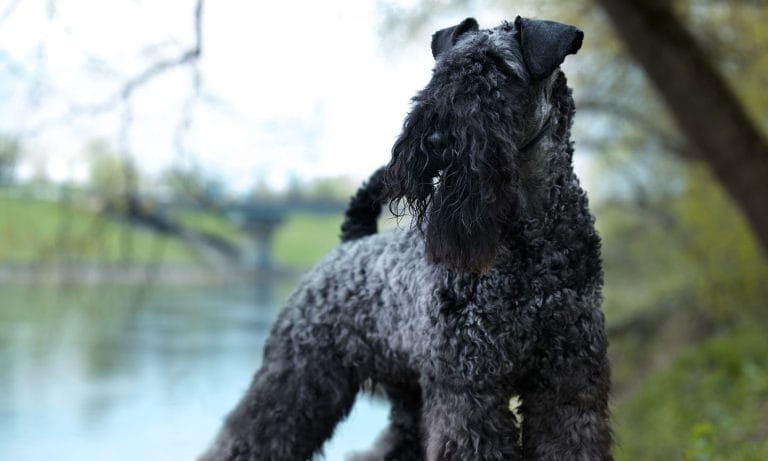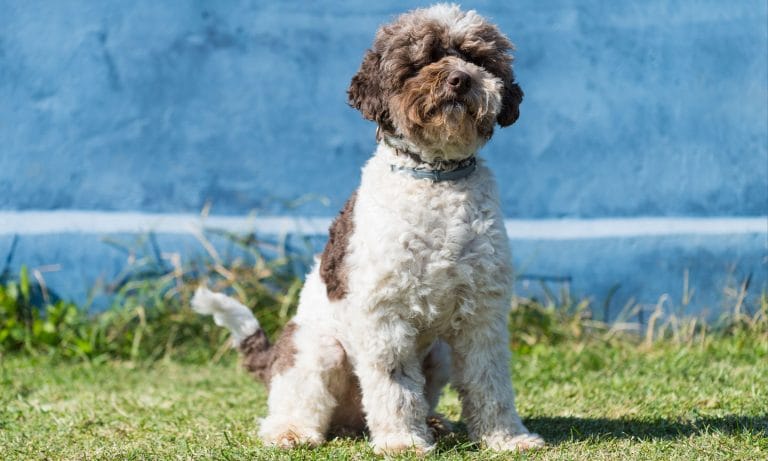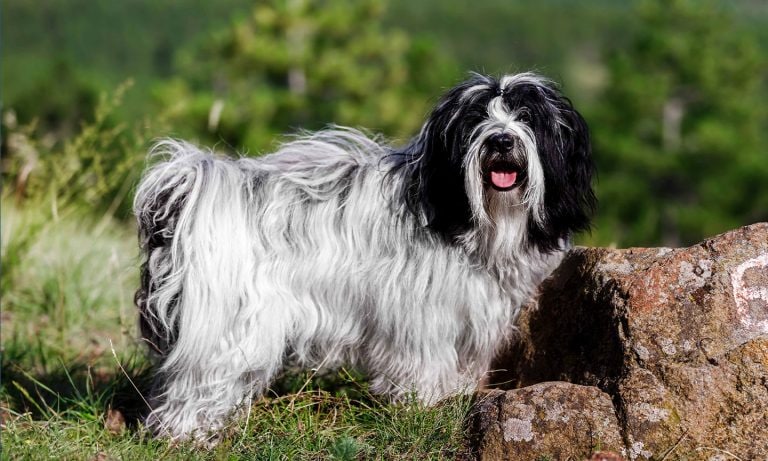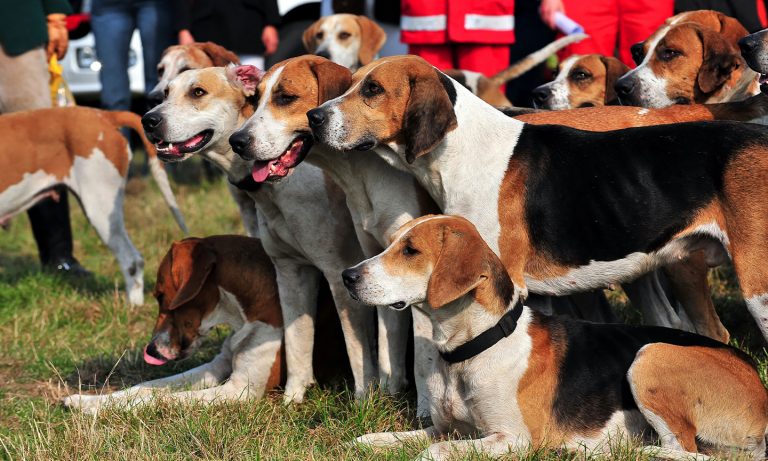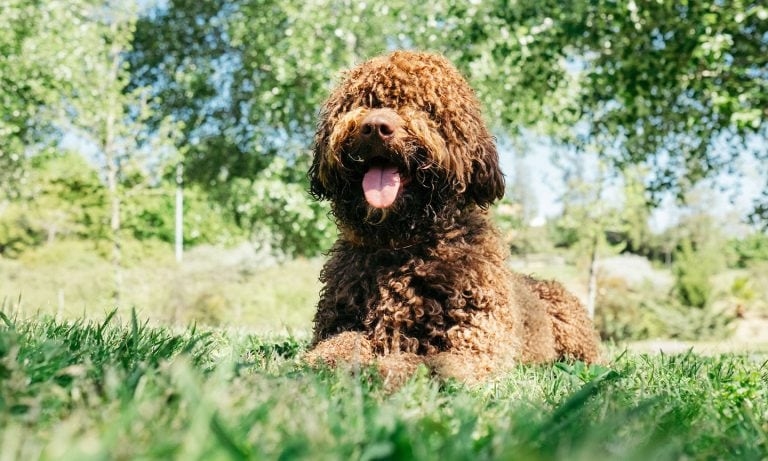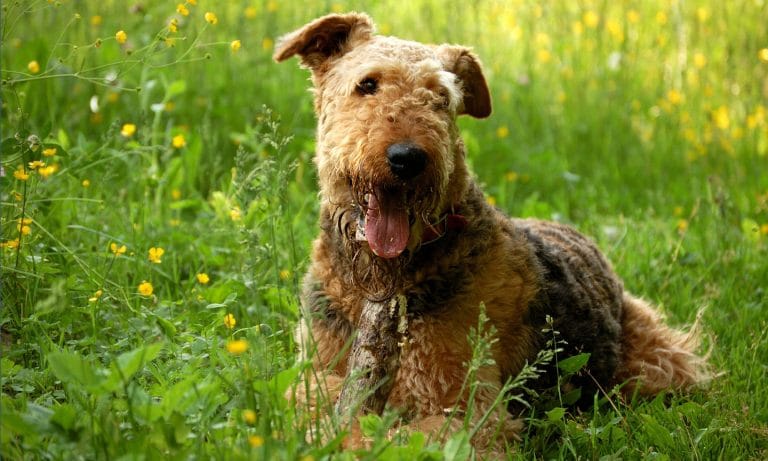She may be Scottish, but if “Brave” Disney princess Merida were magically transformed into a dog, she’d probably be an Irish Terrier. With a lust for life that will match your own fiery outlook, this clever breed will keep you in stitches with their plucky personalities as well as their loyal and loving ways. Like Merida (and you), their outgoing nature can sometimes be a tad too boisterous, but one look at their friendly face will melt your heart and forgive anything. Irish Terriers are just as happy playing tag (which they can do for hours) as they are to sniff every square inch of your neighborhood—as long you’re around to accompany them. Ready for a lifetime of fun and adventure? Meet your new partner in crime.
Breed Snapshot
Temperament:
High-energyLoyalAffectionateCoat Color:
RedRed WheatenWheaten
Best For
Originally bred as farm dogs, the loyal Irish Terrier breed is intelligent, energetic and loves to be around people. These affectionate busy bees thrive with pet parents who can provide plenty of exercise (both physical and mental) and attention (they crave it!).
Irish Terrier Temperament
Irish Terriers are rural-bred, country-fed go-getters who have successfully transitioned into fun-loving family pets over the years. They’re a bold and curious breed who embrace every new challenge like a champ. Dog sports such as agility obstacle courses and interactive puzzle toys will be a hit with this pup, whose ancestors worked multiple jobs—from hunting small game to standing guard—with ease.
This friendly pooch craves recognition for good work and responds well to rewards, whether in the form of treats or a new toy. Irish Terriers are friendly and playful, making them great dogs for families with children, and while they can sometimes get a little rowdy, they aren’t prone to biting. They tend to be barkers and diggers, though, particularly if they don’t get enough stimulation in the form of play sessions and walks. So for a well-behaved dog, it’s totally worth it to take an extra couple of spins around the block to burn off that high energy.
While Irish Terriers are exceptionally compatible with kids, they’re not as thrilled with dogs and cats in the house, especially if they feel if like they’re invading their territory. On the plus side, their alert and observant qualities make them natural-born watchdogs with a powerful bark that would make any intruder think twice. And, like a true canine BFF, this bearded beauty likes to be the center of your world and will happily monopolize all your attention if you let them. All things considered, Irish Terriers are full of personality and are an even-tempered, manageable breed.
How to Care for a Irish Terrier
Activity, both physical and mental, may be priority No. 1 for busy bee Irish Terriers, but their intelligence, eagerness to please, moderate grooming needs and affectionate nature make them relatively easy to care for. Though they thrive in active family homes with kids but no other pets, their playful ways will fill your home—big or small—with love and laughter.
Irish Terrier Health
The life expectancy of an Irish Terrier is 13-15 years. This is a strong, ancient breed and is generally healthy, though they are prone to a few health issues. With regular vet check-ups and your knowledge of what to watch out for, your pet can live a long and happy life.
- Bladder Stones: Bladder stones can be genetic, and Irish Terriers are more` prone to them than other breeds. Buildup of cystine (an amino acid) can occur in the urine leading to bladder stones. Stones can be painful and make it difficult for your dog to urinate. Symptoms include blood in your dog’s urine or straining to pee. Depending on the type of stones, treatments can range from a special diet aimed at dissolving the stones to surgery to remove the stones. If your pet is ever unable to urinate, this is an emergency, so contact your vet immediately.
- Hyperkeratosis: This is a relatively rare condition in which a dog’s footpads become hardened and can crack. Aside from a crusty and dry appearance, symptoms include limping, reduced activity and bleeding paw pads. While there is no cure, a genetic test has recently been developed to detect this condition. Your vet can help with a treatment plan to make your vet more comfortable.
- Hip Dysplasia: This often-genetic condition occurs when the ball and socket joint does not form properly resulting in lameness, pain and arthritis. Treatment options typically include joint supplements, pain medication and, in severe cases, surgery.
Irish Terrier History
In the rolling green fields of Ireland back in the late 1800s, Irish Terriers were as common as three-leaf clovers—and with that dense and wiry coat, even a couple hundred drizzly days a year never rained on this breed’s parade. Originally bred as farm dogs, Irish Terriers quickly proved they had the brains and versatility to expand their resume, which they did in a big way by acting as watchdogs, hunting dogs and even transporting messages for the military and working as sentinels during World War I.
Irish Terriers are one of the oldest terrier breeds and were officially recognized by the American Kennel Club (AKC) in 1885. The name “terrier” comes from the Latin word “terra,” or earth, because these dogs love to burrow and dig up rabbits and moles (but hopefully not your flower bed).
Curious about their origin? Rumor has it the Irish Terrier may be a descendent of the Black and Tan Terrier, which is now extinct. Today, Irish Terriers have the trademark red coat that makes this breed so unique. While they originated in Ireland, these dogs were pretty popular in America in the 1920s, when they became the mascot of the University of Notre Dame “Fighting Irish” football team, a title the terriers held all the way until the ’60s. No wonder this breed looks so proud!
If interested in having an Irish Terrier in your life, where do you start? You can find information on reputable breeders at the AKC’s website. The average price of an Irish Terrier ranges from $1,500-$3,500, depending on the breeder. Buying from a reputable breeder means you’re more likely to be getting a pup with pedigree papers and who has likely been screened for health and temperament issues. You can also get in touch with Irish Terrier rescue organizations to adopt one of these distinctive dogs or get in touch with your local animal shelter. You can also search Chewy’s database of adoptable dogs in your area.
FAQs
Do Irish Terriers shed?
Irish Terriers shed very little but do require brushing two to three times a week to remove the dead hair from their wiry coats.
Are Irish Terrier good family dogs?
Irish Terriers make excellent family dogs! They’re energetic and playful, and they love to play tag and fetch with humans of all ages.
How big do Irish Terriers get?
Male Irish Terrier dogs can be up to 27 pounds, while females are usually around 25 pounds. Both males and females are typically about 18 inches tall at the shoulder.
Do Irish Terriers bark a lot?
Irish Terriers are quite vocal and will often bark to alert their owners of visitors or to communicate needs like going outside. Excessive barking can typically be controlled, particularly if training begins at a young age.
What are the most popular Irish Terrier names?
The most popular Irish Terrier names are often related to their native Ireland, including names like Finn, Lucky, Molly, Murphy and Paddy. Other popular names include Beau, Bella, Buddy, Charlie, Chloe, Coco, Dexter, Dixie, Jack, Lola, Maya, Nala, Sasha, Sophie, Tucker and Zeus. Get more dog names.
What are the most common Irish Terrier dog mixes?
The most common Irish Terrier mixes are:
- Irish Terrier-Poodle mix (Irish Troodle)
- Irish Terrier-Schnauzer mix
- Irish Terrier-Labrador Retriever mix (Irish Terrier Lab)
- Irish Terrier-Chihuahua mix
- Irish Terrier-Jack Russell mix
Note: These are not purebred dogs but mixed breeds.
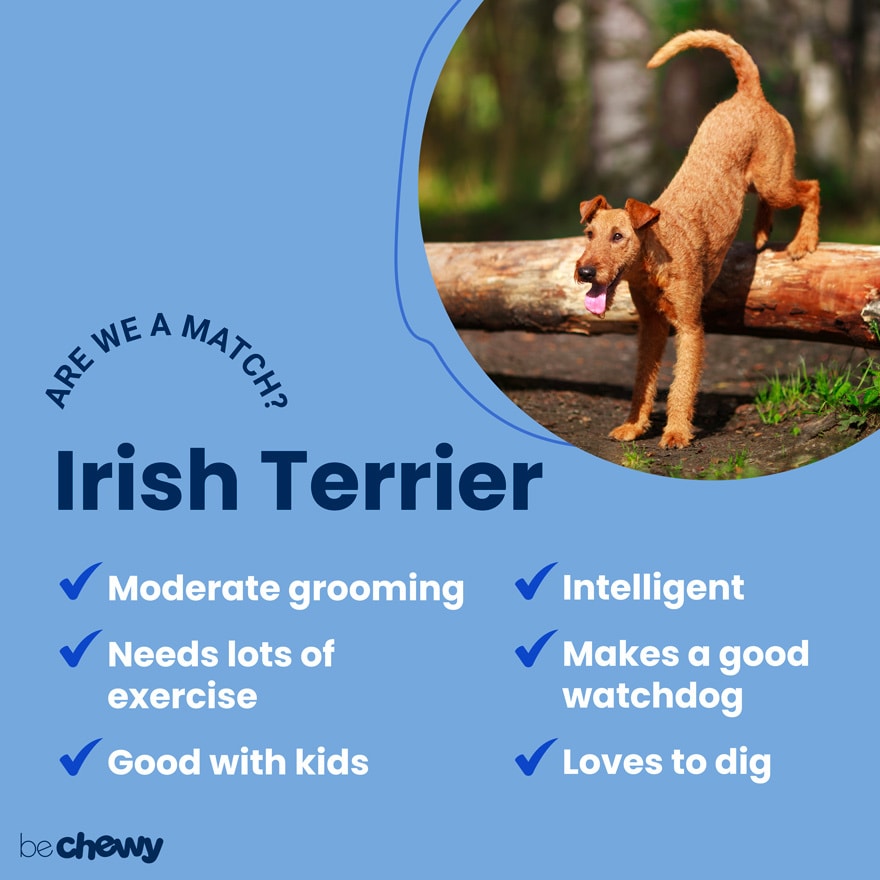
Top Takeaways
High on life and ready to take on the world—which they could do with one paw tied behind their backs—Irish Terriers are a bold, courageous breed with deep Irish roots. These dynamic dogs may require lots of exercise, but their big personalities make spending time with them a ton of fun. And don’t worry if you get a digger or barker. With a little training and loving patience, these clever pups will rarely step out of line.
Expert input provided by veterinarian Dr. John Brandy, DVM with Village Veterinary Hospital in Canastota, New York; and Connecticut-based Jennifer Dematteo, owner of training and dog-walking service Jenny Walks the Block.
Breed characteristic ratings provided by Dr. Sarah J. Wooten, DVM, CVJ, a veterinarian at Sheep Draw Veterinary Hospital in Greeley, Colorado; dog trainer and behavior consultant Irith Bloom, CPDT-KSA, CBCC-KA, CDBC, owner of The Sophisticated Dog, LLC, in Los Angeles; and certified animal behavior consultant Amy Shojai, CABC, in Sherman, Texas.
The health content was medically reviewed by Chewy vets.

Search for Adoptable Irish Terriers Near You
Female Names
- Penny
- Ginger
- Lucy
- Molly
- Annabelle
- Maeve
- Riley
- Sadie
- Freya
- Ellie
Male Names
- Finn
- Murphy
- Rufus
- Winston
- Cooper
- Finley
- Oliver
- Tully
- Seamus
- Joey
Share:
